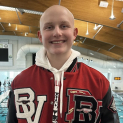Promoter Hypermethylation in MLL-Rearranged Leukemias: Biology and Therapeutic Targeting
Several common childhood leukemias are now considered curable. However, there are features of leukemia cells which continue to make them difficult to treat. One such feature is having an alteration in a gene called MLL. It is not yet fully understood why MLL alterations cause leukemia. In addition, current therapies do not seem as effective against leukemia with MLL alterations as it is in those without. We hope to better understand MLL in a way that will bring about new therapies for the disease. Our own body can destroy cancer cells with the help of tumor suppressor genes. Early studies suggest that several of these tumor suppressor genes are 'turned off' in leukemia with MLL alterations. Drugs, that are well tolerated in people, are already available which may be able to turn these genes 'back on.' We propose to study a large number of leukemia samples from infants, children and adults with MLL mutations using laboratory techniques which can identify which genes might be 'turned off.' Additionally, we hope to study drugs which can reverse that process to see if they can be added to current therapies with the goal of improving the outcome of patients with MLL altered leukemias.
Project Update 6/2012
Leukemias which have a rearrangement of a specific gene called MLL are extremely difficult to treat. While overall rare, they are common in children with leukemia who are less than one year of age. In addition, rearrangements of the MLL gene are seen in both major types of leukemia, ALL and AML and they are seen in people of all ages from infants to those of old age. Evidence has suggested that, in general, ALL and AML are very different diseases and as such, they are treated very differently. In addition, evidence has suggested that even in a particular lineage of leukemia (ALL or AML) that the childhood disease is very different than that acquired by adults. However, recent evidence has suggested that there is something genetically similar between ALL and AML with MLL-rearrangements. New drugs which are very well tolerated could be valuable in treating MLL-r infant ALL. Some of these drugs target genes which are incorrectly overly active in this type of leukemia and other drugs correct leukemic errors in DNA which lead to the lack of expression of genes important in the body’s fight against cancer: tumor suppressor genes. Our goal was to see if ALL and AML which have MLL-r are in fact similar diseases. In addition, we examined if MLL-r diseases in those in infancy were similar to those in adulthood. We found that MLL-r ALL is very similar in people of all ages who get this disease, suggesting that the drugs which could help infants should also be tried in adults. We also discovered a small but consistent signal among MLL-r leukemias of all lineages, however, we also showed that this signal may not be as significant as previously thought.

